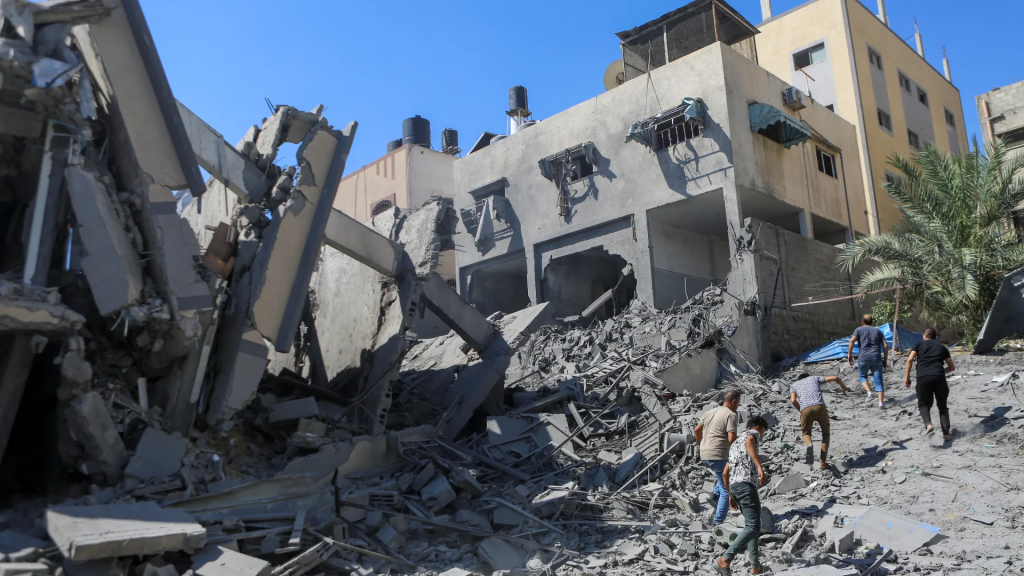The economy of the Gaza Strip has suffered a severe decline, with unemployment reaching nearly 80% after the fighting between Israel and Hamas began.
The International Labour Organisation (ILO) reported on Thursday that Gaza’s economic output has dropped by 85%, pushing the population of 2.3 million into extreme hardship.
The ILO described the situation as causing unprecedented destruction in the job market and economy in both Gaza and the West Bank.
In the West Bank, the unemployment rate rose to 34.9% from October 2023 to September 2024, and the economy shrank by 21.7% compared to the previous year, showing the widespread effects of the conflict.
Before this crisis, Gaza already had a 45.3% unemployment rate, while the West Bank had 14%, according to the ILO. With formal jobs disappearing, many people in Gaza are now forced to take on irregular work, mainly in essential services and goods distribution.
The conflict started after a deadly attack by Hamas on October 7, which resulted in around 1,200 deaths and the kidnapping of about 250 people, according to Israeli sources.

Israel’s military response has led to over 42,000 deaths, as reported by health officials in Gaza.
United Nations satellite data shows that two-thirds of Gaza’s buildings—around 163,000—have been heavily damaged or destroyed. Israel claims that its military operations are necessary to eliminate Hamas militants hiding in civilian areas.
The crisis has also affected the West Bank, where strict movement restrictions and disrupted trade have further harmed the economy.
Israeli officials argue that their actions, including trade blockades, are necessary to limit the power of Iran-backed militant groups and protect civilians.
Ruba Jaradat, the ILO’s regional director for Arab states, emphasised that the impact of the conflict goes far beyond the immediate loss of life and destruction.
“The impact of the war in the Gaza Strip has taken a toll far beyond loss of life, desperate humanitarian conditions and physical destruction.
“It has fundamentally altered the socio-economic landscape of Gaza, while also severely impacting the West Bank’s economy and labour market. The impact will be felt for generations to come.” she warned.


